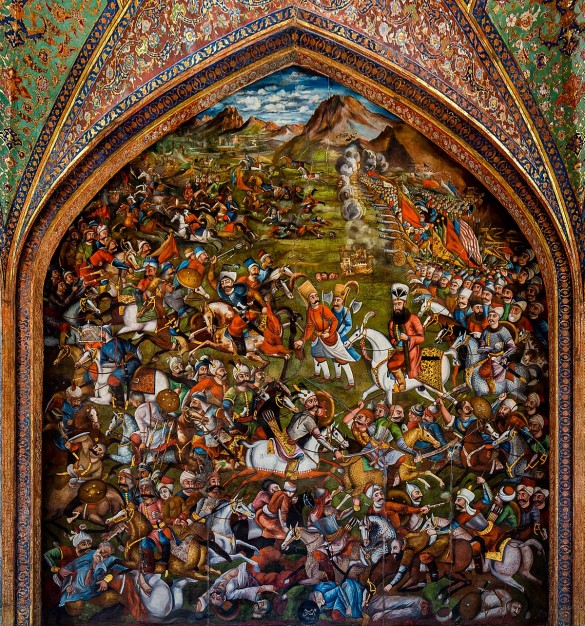
Religion has been a fundamental aspect of human civilization, providing a sense of purpose, values, and community. Throughout history, different religious sects have emerged, each interpreting their faith in unique ways. While this diversity can enrich society, it can also lead to disputes and conflicts. This article delves into the causes of disputes between religious sects, their impact on society, and strategies to foster unity and understanding.
The Significance of Religious Sects
Religious sects represent distinct branches within a broader religion, often characterized by varying interpretations of sacred texts, rituals, and beliefs. These sects offer individuals a sense of belonging and identity. However, these differences can sometimes create divisions and tensions between communities.
Understanding the Origins of Disputes
Historical Schisms
Many disputes between religious sects have their roots in historical schisms. These schisms occurred due to differences in doctrines, practices, or leadership, leading to the formation of separate sects. Over time, these divisions have become ingrained and, in some cases, exacerbated by new theological disagreements.
Theological Differences
Theological interpretations play a significant role in disputes between religious sects. Often, minor discrepancies in beliefs can lead to significant disagreements, causing a drift between communities. Rigidity in holding on to one's interpretation can hinder the possibility of finding common ground.
Impact on Society and Culture
Disputes between religious sects can have profound implications for society and culture. Tensions and conflicts can lead to animosity, discrimination, and even violence. Additionally, societal progress can be hampered when energy and resources are diverted towards inter-sect rivalries rather than collective growth.
The Role of Leadership in Mitigating Disputes
Effective leadership within religious communities can play a crucial role in mitigating disputes. Leaders who prioritize open dialogue, inclusivity, and empathy can bridge the gaps and promote understanding among sects.
Communication and Dialogue as Tools for Resolution
Clear and respectful communication is vital in resolving disputes. Encouraging dialogue between representatives of different religious sects can foster mutual respect and provide a platform for finding common ground.
Bridging the Gap: Finding Common Ground
Identifying shared values and beliefs can act as a foundation for building unity among religious sects. Emphasizing these commonalities can promote a sense of interconnectedness and diminish animosity.
Embracing Diversity and Pluralism
A society that embraces diversity and pluralism fosters a more tolerant and inclusive environment. Encouraging acceptance of different religious sects can lead to a more harmonious coexistence.
Challenges in Achieving Unity
Achieving unity between religious sects is not without challenges. Deep-rooted historical tensions, prejudices, and misconceptions can hinder progress towards reconciliation.
Lessons from Past Reconciliations
History has witnessed instances of successful reconciliation between religious sects. Analyzing these past experiences can offer valuable insights and guide contemporary efforts towards unity.
The Importance of Education and Interfaith Initiatives
Education and interfaith initiatives can play a pivotal role in breaking down barriers and stereotypes. Promoting mutual understanding and respect from a young age can sow the seeds of harmony.
Overcoming Misconceptions and Stereotypes
Misconceptions and stereotypes about other religious sects can perpetuate division and conflict. Encouraging critical thinking and challenging prejudices can pave the way for better inter-sect relations.
Social Media and Its Impact on Inter-Sect Relations
The advent of social media has both positive and negative impacts on inter-sect relations. On one hand, it allows for global dialogue and exchange of ideas, while on the other, it can exacerbate echo chambers and misinformation.
Navigating Interfaith Marriages
Interfaith marriages can be an opportunity to bridge gaps between religious sects. However, they can also face challenges, requiring understanding and compromise from both partners and their respective communities.
The Way Forward: Fostering a Harmonious World
The path to fostering a harmonious world lies in recognizing and celebrating the diversity of religious beliefs. Embracing empathy, compassion, and open-mindedness can lead to a future where disputes between religious sects are replaced by mutual respect and cooperation. In conclusion, disputes between religious sects are not uncommon, but they are not insurmountable. Understanding the root causes of these disputes and addressing them with compassion and dialogue is crucial for achieving unity and harmony. Embracing diversity, promoting education, and challenging stereotypes are key steps towards a more inclusive and understanding society.
Jerusalem's Western Wall has visitors place written prayers within its cracks
Embarking on a Spiritual Journey: Exploring Religious Places for Inner Peace and Guidance
From Healthcare to Education: Services That Shape Our Society